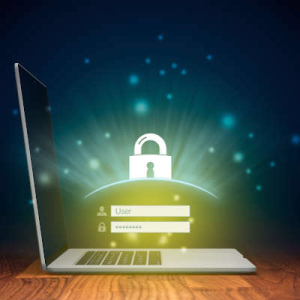
COVID-19 has been pretty rough on the small business. Millions of businesses have either been forced to suspend or alter operations. Today, we wanted to point out that you may be distracted with a lot of things, but your business’ cybersecurity efforts need to be a priority.
I’m confident that most businesses have some form of cybersecurity software in place. That solution will undeniably filter a lot of bad things that come in from the outside, as long as you keep its firmware updated with the latest threat definitions. Unfortunately, some equally terrible things get through. This happens almost constantly creating a perilous landscape where all of a business’ information systems need to be protected, from the servers to the switches.
Cyberthreats are coming in from all different directions, and could be costing businesses capital they don’t have when their revenue streams are compromised. As a result, you are seeing calls for cyber-clemency emerging. Unfortunately, hackers seek out opportunity; and now is their opportunity. Think about it, most workforces are now working remotely if they are working at all. This separates workforces from their security setups and forces them to try to maintain the same level of operational security while most (or all) of the workforce is working from different IP addresses. This makes endpoint security essential.
You can do all you can do to try to maintain security, but if you don’t have a well-trained workforce, your chances of getting hacked go up exponentially. All employees should be able to spot a phishing attack, they should use only directed authentication procedures, and should have remote or VPN access to ensure that information that is sent from their home workstation isn’t intercepted en route. Really, every worker you have should know these four things:
- How to effectively manage passwords – Not only should each employee understand how to concoct a solid password they should know how to manage their passwords. Since passwords shouldn’t be the same for different accounts, and most people work with over 10 different services that require authentication, making sure that they know how important password management is will drive the point home that there are consequences for negligent behavior if it negatively affects the business.
- Know how and where to use the Internet – It would completely understate how risky it is to use some Wi-Fi connections to say that your employees need to be careful. Any threat that gets onto the network could be the one that causes major problems, so keeping them out is key. By having the ability to securely access work-materials and send and receive files, your business can cut down on risk. Any member of your staff can do that by ensuring that the Wi-Fi connection they are using is secure.
- Know how to identify threats – Most of your employees will be confronted with a phishing attack at some point. Making sure they know what some of the variables they need to be on the lookout for–such as checking the URL of any links by mousing over them–can go a long way toward protecting your business.
- Know how to react if something bad does happen – No one is perfect, and you’d be surprised how many of us have made mistakes that could have been disastrous to the organization we work for, only to mitigate those threats by knowing how to react if something does happen. As scary as some of the malware we encounter is, knowing who to communicate with, and what processes need to be taken to ensure that you aren’t responsible for putting your employer (and all the people that depend on them) in jeopardy, is crucial.
The pandemic has caused a lot of businesses plenty of headaches. Some are panicking, which is understandable considering what’s happening, but it really is the worst time for that. If you are able to stay calm, you may be able to endure this pause of everyday life and come back stronger than ever. Call the IT professionals at COMPANYNAME to help you keep your network and infrastructure secure during this difficult period.